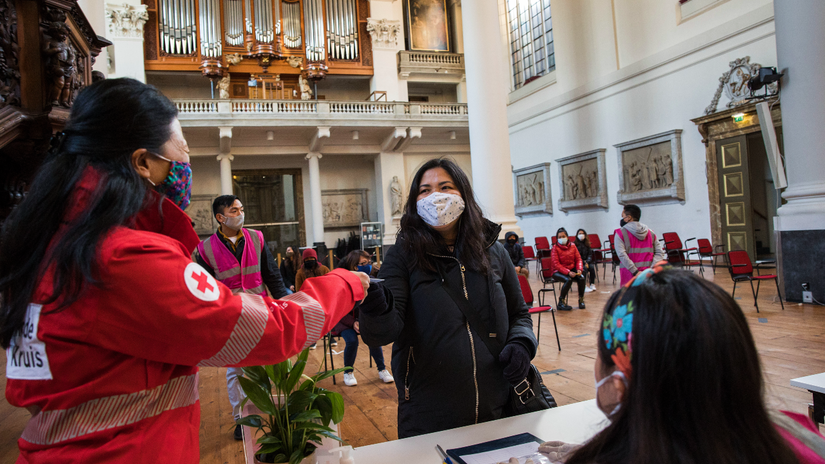Food security and livelihoods
Disasters and crises can take a devastating toll on people’s food security and livelihoods. They can increase people’s socio-economic vulnerability and seriously impact their ability to recover, which in turn affects their ability to cope with future shocks and stresses.
Our work
Food security and livelihoods support is an important part of emergency response and building long-term community and household resilience.
Food security is when all people have physical and economic access at all times to buy, produce, obtain or consume sufficient, safe and nutritious food to meet their dietary needs and food preferences for a healthy and active life.
Livelihoods are the capabilities, assets and activities required for people to earn money and secure a means of living.
Our food security and livelihoods programmes vary greatly depending on the context and are often delivered in combination with other sectors. They focus on three main areas:
- Ensuring access to food and the protection of livelihoods during and immediately after an emergency, primarily through cash assistance and in-kind transfers
- Restoring and reinforcing community and household assets, capabilities, and strategies to improve food security and secure livelihoods during the recovery phase following a disaster or crisis
- Strengthening food security, expanding climate-smart and green livelihoods, and building household resilience by supporting improved rural and urban production, self- and paid employment, and entrepreneurship
Watch: What are livelihoods?
Emergency appeals
Food security and livelihoods during COVID-19

The Netherlands Red Cross hands out food vouchers to thousands of people who need food aid as a result of the COVID-19 pandemic and its impacts on people's socio-economic stability
Photo: Netherlands Red Cross/Arie Kievit
Addressing the socio-economic impacts of COVID-19 remains one of the IFRC’s three priorities in our global response to the pandemic.
Food insecurity, poverty and associated inequality have all seen a worrying rise during COVID-19. Even as restrictions ease in some countries, vulnerable families have depleted their coping mechanisms, having used up their savings, sold their assets or taken on debt. Without support, they will find it difficult to recover their lives and livelihoods.
Red Cross and Red Crescent Societies have responded to these challenges in a wide range of ways. Activities include food assistance, cash assistance to help meet basic needs, support to protect livelihoods, and support that restarts disrupted livelihoods and small business activities.
Discover the latest about our food security and livelihoods work in our most recent global COVID-19 response update. And for practical resources on COVID-19 and livelihoods, visit the Livelihoods Centre website.
Watch: Our work in action
Latest
Resilience: Nurturing new life in Galoolay village
Resilience: Nurturing new life in Galoolay village
A severe and prolonged cold spell in Mongolia – known as the ‘dzud’ – is taking a deep toll on rural livestock herders
A severe and prolonged cold spell in Mongolia – known as the ‘dzud’ – is taking a deep toll on rural livestock herders
IFRC launches an appeal as Mongolia faces its harshest winter in 50 years
IFRC launches an appeal as Mongolia faces its harshest winter in 50 years
Cash assistance: ‘Today, I see a brighter future for my daughters’
Cash assistance: ‘Today, I see a brighter future for my daughters’
Related documents
The Path Towards Equity
Read more
PGI Guide on Livelihoods and Food Security activities during COVID-19
Read more
The impact of the Ukraine conflict as a crisis multiplier in the Middle East and North Africa
Read more
Drowning just below the surface: The socioeconomic consequences of the COVID-19 pandemic
Read more
